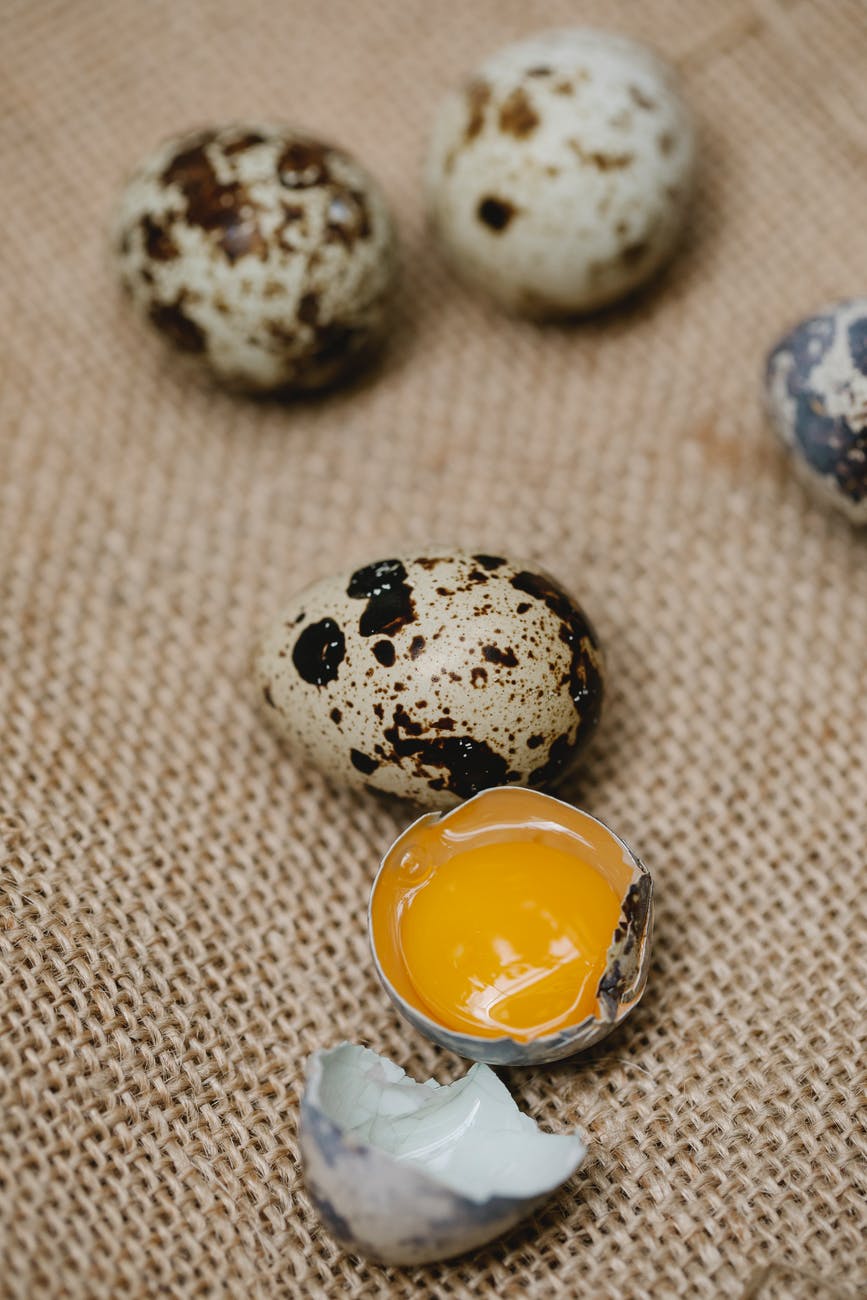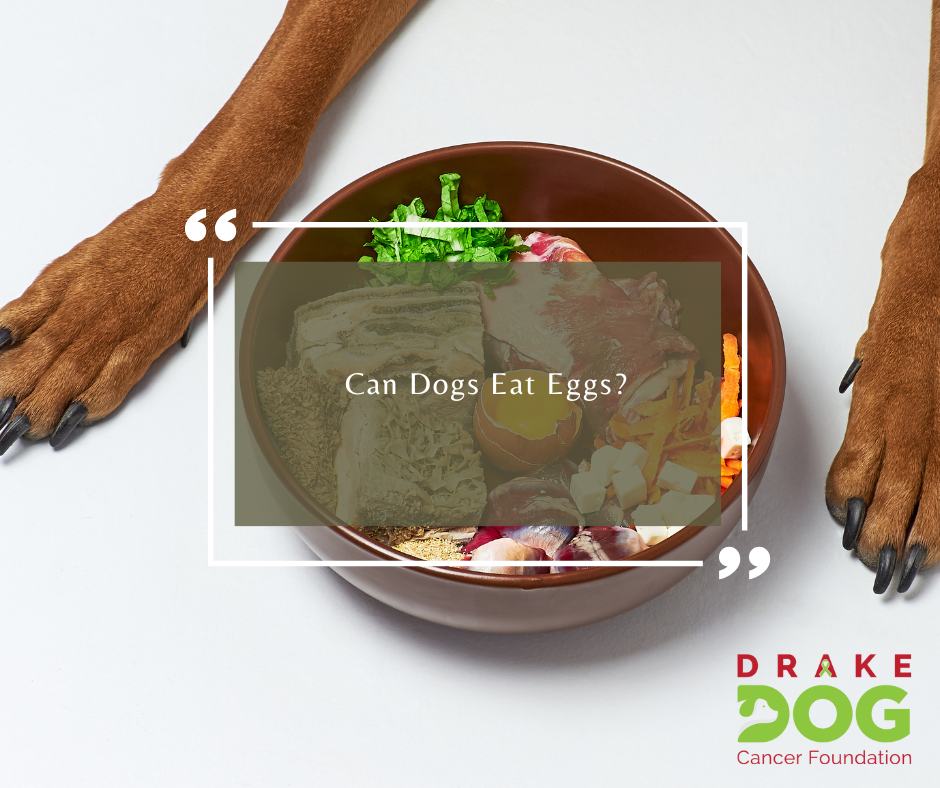For dogs, eggs, especially uncooked eggs, can be debatable. Salmonella illness and even a biotin shortage from eating eggs are issues that worry people.
Yes, dogs can eat eggs safely. Similar to their relatives, wolves, coyotes, and foxes, dogs can safely consume raw eggs. Wild dogs snag eggs from nests and consume them whole, still in the shell. The ideal technique to feed them to your dog is in that manner. Eggs are a convenient and affordable source of protein.
One of the most comprehensive and nutrient-dense items you can provide dogs on a raw food diet is raw eggs.
The Health Benefits Of Eggs For Dogs
Eggs offer incredible benefits for dogs due to their wide range of nutrients. It comes as no surprise. After all, inside the egg, a tiny chick has access to all the resources it needs to develop and grow into a chicken. So, why wouldn’t it make sense that it’s nutrient-dense?
Protein
One of the best sources of amino acids, which are the building blocks of protein, is eggs. You can increase the protein in your dog’s diet by adding eggs to his meals.
Vitamins And Minerals
Eggs are a nutritional powerhouse, with a wide range of nutrients, including:
- Vitamin A
- Folate
- Riboflavin
- Iron
- Vitamin B12
- Selenium
- Antioxidants lutein and zeaxanthin
- Fatty acids
Are Eggs A Salmonella Risk For Dogs?
Although you might be concerned that eating raw eggs could expose you to salmonella, dogs have strong digestive processes that allow them to readily handle this and other bacteria found in raw meals. To maintain appropriate bacterial levels, there are a few factors you should take into account while selecting your eggs.
The welfare of the hen producing the eggs is crucial. Your dog should ideally get eggs from healthy, organic, pasture-raised chickens.
Can Eggs Cause A Biotin Deficiency In Dogs?
One of the B vitamins that eggs contain is biotin. It’s essential for your dog’s healthy skin, coat, metabolism of fatty acids, and cellular growth. Avidin, a biotin inhibitor, is present in egg whites. However, consuming an excessive number of eggs would be necessary to cause a deficit.
There are minimal concerns if you eat the entire egg because egg yolks are highly high in biotin. Other excellent sources of biotin are included in his diet when you offer him a complete, fresh food. One excellent source is liver. Cooking the egg white will reduce this potential risk, but it will also significantly reduce the nutritional benefits of feeding egg.

JustFoodforDogs Sampler Variety Box
The new Sampler Variety Box includes seven of our fresh frozen daily recipes that we think your dog will like. These recipes were created with rotational feeding in mind, ensuring that your dog gets nutrients from a range of protein sources to help support their general health.
Are Enzyme Inhibitors In Eggs Harmful?
Some people wonder whether it’s okay for dogs to consume eggs because raw egg whites contain enzyme inhibitors. They may affect digestion, especially in very young and old animals, which is a concern.
Even while this is the case, it just suggests that eggs shouldn’t make up the bulk of your dog’s food. There won’t be any risk if you feed a fresh, well-balanced food. The majority of dogs have no issues eating several eggs every week. However, if you’re worried, start with one egg. and your dog should be fine eating eggs on a daily basis if he doesn’t experience any stomach discomfort.
Can Dogs Eat Eggshells?
Eggshells are a rich source of calcium and can be eaten by dogs. A whole egg, including the membrane and shell, is nearly a complete meal for your dog. An egg offers almost all of the amino acids your dog needs to remain healthy, and the phosphorus and calcium allow your dog to create strong bones and teeth.
The thin membrane contains:
- Collagen
- Chondroitin
- Hyaluronic acid
- Glucosamine
If you have a lot of patience, you can directly feed it by peeling the membrane off the eggshell. Eggshell membrane supplements are also available for purchase, or give your dog the entire egg.
Make sure to purchase from a nearby farmer or farmers market if you intend to give your dog the entire egg. To make the eggs in grocery stores look shiny, many of them are treated with chemicals.

Are Eggshells A Good Bone Substitute?
You can feed eggshells to your dog if they have trouble chewing on bones. However, eggshells don’t include phosphorus or magnesium, which are additional essential minerals in bone and bonemeal, so your dog will need to get these minerals from other sources.
Dry the eggshells, then use a clean coffee grinder to ground them into a powder before adding them to your dog’s food. Sprinkle 1/2 teaspoon of eggshell powder on your dog’s next meal to increase his calcium intake.
Can Puppies Eat Eggshells?
Although eating eggshells is harmless for pups, they don’t get enough calcium from them. Puppies must consume a lot of calcium in order to develop strong bones. However, dogs have trouble absorbing calcium carbonate, which is what is found in shells. As was already noted, magnesium and phosphorus are not present in eggshell powder.

The healthiest calcium source for puppies is fresh, raw bone. You can give your puppy grass-fed bonemeal as a calcium supplement if you don’t want to give them bones or if they have trouble eating them.
How To Feed Eggs To Dogs
The best method to ensure your dog gets all the vitamins, minerals, and nutrients found in eggs is to feed them raw eggs if they tolerate them. Of course, you may also offer your dog cooked eggs.
Soft or hard boiled eggs, as well as eggs that have been scrambled in pastured butter, are all excellent options. Like people, some dogs may react negatively or be sensitive to eggs. Vomiting, diarrhea, or even symptoms like itching skin or swollen ears after eating eggs could indicate a problem.
Where To Buy the Healthiest Eggs
The best place to purchase eggs is at a farmers market or from a nearby organic farmer. The more nearby the chicken is that is laying the egg, the better. Keep your dog safe by avoiding eggs from the grocery store that may have been treated with toxins. Buy organic, pasture-raised eggs if possible.
Read more:
The nutrition of pasture-raised chicken and meats
The top benefits of pasture-raised chicken
Benefits of pasture-raised eggs
Pastured vs Omega-3 vs Conventional Eggs — What’s the Difference?
